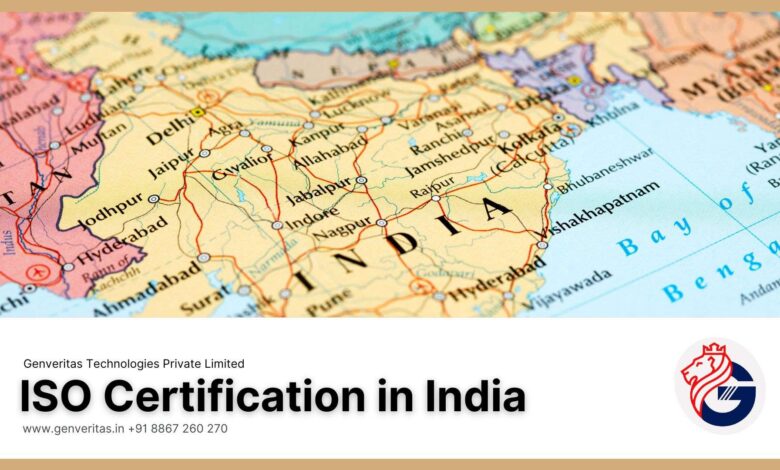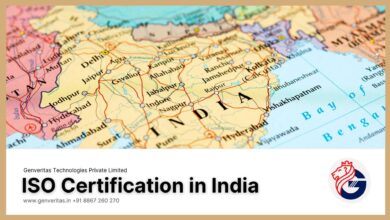ISO 27001 for Indian Businesses

In India’s rapidly evolving digital landscape, securing information is paramount. ISO 27001 certification provides a robust framework for establishing an Information Security Management System (ISMS), vital for building trust and resilience. For Indian businesses across all sectors, from burgeoning startups in Bengaluru to established enterprises nationwide, embracing ISO 27001 signifies a proactive commitment to safeguarding valuable digital assets.
At its core, ISO 27001 offers a risk-based approach to information security. It guides organizations in identifying, assessing, and treating information security risks, ensuring the confidentiality, integrity, and availability of critical data. This isn’t just about implementing technical safeguards; it encompasses people, processes, and technology, fostering a security-aware culture within the organization.
For Indian businesses, the benefits of ISO 27001 certification are multifold. In an environment where cyber threats are increasingly sophisticated, certification demonstrates to customers, partners, and stakeholders a tangible commitment to data protection. This builds unshakeable trust, a crucial differentiator in a competitive market. Moreover, as India strengthens its data protection regulations, ISO 27001 provides a structured pathway to align with legal requirements, mitigating the risk of penalties and ensuring compliance.
Building Digital Trust: In India’s evolving digital landscape, ISO 27001 certification is paramount for establishing trust with customers and partners by demonstrating a strong commitment to data security.
Strengthening Cyber Resilience: As cyber threats in India escalate, ISO 27001 provides a robust framework to identify, assess, and mitigate information security risks, enhancing an organization’s ability to withstand attacks.
Ensuring Regulatory Compliance: ISO 27001 helps Indian businesses align with local data protection regulations, avoiding potential penalties and ensuring legal adherence in a changing legal environment.
Enhancing Business Continuity: By establishing strong incident management and disaster recovery plans, ISO 27001 ensures Indian organizations can minimize disruptions from security incidents and maintain operational stability.
Gaining a Competitive Edge: Holding ISO 27001 certification provides Indian businesses with a globally recognized security credential, enhancing their competitiveness in international markets and attracting global clients.
Key Steps Briefly: Understand standard, assess risks, implement controls, document system, train team, audit internally, get certified, maintain improvement.
Focus for India: Consider local laws, invest in expertise, choose right certifier, prioritize ongoing security.
In essence, ISO 27001 empowers Indian businesses to build a secure digital foundation, foster trust, and achieve sustainable growth in the digital age.
Beyond trust and compliance, ISO 27001 enhances operational resilience. By establishing robust incident management and business continuity plans, organizations can minimize the impact of security breaches and ensure business operations can continue smoothly. This is particularly critical in India’s interconnected digital ecosystem, where disruptions can have far-reaching consequences.
Furthermore, ISO 27001 certification can unlock new business opportunities. As global trade and collaborations increase, many international organizations and clients prefer or mandate working with ISO 27001 certified entities. This certification acts as a globally recognized stamp of security, enhancing the competitiveness of Indian businesses on the world stage.
The journey to ISO 27001 certification involves several key steps. Organizations must first understand the standard’s requirements and conduct a thorough risk assessment. Based on this assessment, appropriate security controls are implemented and documented within the ISMS. This includes establishing policies, procedures, and work instructions. Crucially, employee training and awareness programs are essential to cultivate a security-conscious workforce. Regular internal audits ensure the effectiveness of the ISMS, and finally, an accredited certification body conducts an external audit to grant the ISO 27001 certificate. Continuous monitoring and improvement are integral to maintaining the certification and adapting to the evolving threat landscape.
For Indian organizations, successful ISO 27001 implementation requires considering the specific local context, including regulatory nuances and the unique challenges of the Indian digital environment. Investing in skilled personnel and choosing a certification body with relevant experience in India are vital. Ultimately, ISO 27001 empowers Indian businesses to fortify their digital foundation, build lasting trust, and thrive in the interconnected global economy. It’s a strategic investment in long-term security and sustainable growth.






